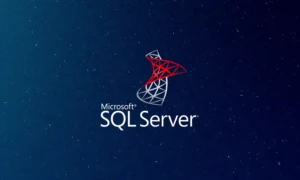Understanding the distinction between Virtual Private Servers (VPS) and Dedicated Servers can guide you in selecting the ideal Server for your needs. Servers are robust machines persistently linked to the internet and power supply. VPS Server and dedicated server can be customized for various uses, such as deploying a website, initiating an app, setting up a VPN server, launching a virtualization system, data storage, backup server, mail server, etc. These servers are accommodated under unique conditions within specialized data centers.
Upon acquiring a server, you will have multiple server types to consider. Two of the most prevalent servers are VPS Server and Dedicated Servers. Before choosing based on cost, you should understand the fundamental differences between these two server types and determine which best suits your requirements. This article will help you understand the critical factors to consider in the VPS vs. Dedicated Server debate. With this knowledge, you will be well-positioned to make an informed purchasing decision that best fits your needs.
What is Virtual Private Server?
A Virtual Private Server (VPS) represents a distinct segment of a physical server, with a dedicated set of resources assigned solely to it. This arrangement gives you root access and the flexibility to add functionalities not typically available on shared and reseller hosting plans, offering more customizability than a standard shared hosting plan.
However, it doesn’t provide all the resources of an entire physical server. Hence it is less resource-rich and adaptable.
Thus, It allows for root access and customization at a fraction of the cost of a dedicated server. This makes it an ideal platform for experimenting with new themes and designs and developing test sites before migrating them to shared resellers.
What is Dedicated Server?
It is a specialized form of web hosting in which the client has exclusive access to an entire server without sharing it with anyone else. Unlike shared hosting, this server grants organizations total autonomy over the server’s environment. It includes complete control over the operating system selection, hardware components, software applications, and other server configurations. This server type offers robust performance and maximum security since the resources such as CPU, RAM, and storage are not shared, reducing the risk of slowdowns, downtime, and potential security breaches.
Additionally, dedicated servers are often accompanied by comprehensive technical support from the hosting provider, ensuring that expert help is available when needed. While it is typically more expensive than other hosting options, it is a powerful and flexible solution, often chosen by businesses with high-traffic websites or demanding applications.
Key characteristics of a dedicated server include:
- Full Utilization: The entire resources of the machine – CPU, RAM, storage – are exclusively at the user’s disposal.
- Customization: As the Server is under the user’s complete control, they can choose the type and level of the operating system, the hardware components, and the system’s configuration.
- Enhanced Security: It typically comes with added security measures and is often more secure as they don’t share space with potential malware from other users.
- High Performance: It generally provides better performance and responsiveness since resources aren’t shared.
- IPv4 and IPv6 addresses: You can assign multiple IP addresses to a server.
- A range of Operating Systems: You can choose the operating system that fits your needs, whether it’s a type of Linux, Windows, or something else.
- Technical Support: Most providers offer technical support for your Server.
- Backup: Some servers come with external storage space for backups.
- SLA Commitment: Providers often commit to a certain level of service availability, sometimes up to 99.99%.
- Anti-DDoS: Providers often include distributed denial-of-service (DDoS) protection to protect your Server from attacks.
- Unlimited Traffic: Some providers offer unlimited inbound and outbound traffic, allowing you to control costs.
Add-ons are typically offered for a fee to enhance your Server’s functionality, security, or redundancy, depending on the nature and needs of your project.
Which Server should you choose?
Choosing between a Virtual Private Server (VPS) and a dedicated server largely hinges on your needs and resources. It is typically the best choice if your website or application requires high performance and vast resources, as it provides exclusive access to all server resources. However, suppose you’re managing a tight budget or a smaller project.
A VPS is the better option since it is generally more affordable and shares physical server resources with other users. Furthermore, It offers more effortless scalability, letting you conveniently upgrade your plan to suit your growing business needs. But, if you need complete control over server configurations or have unique requirements, a Managed Dedicated Server can be more beneficial. Regarding security, both options provide adequate measures, although a dedicated server eliminates risks associated with sharing server space. Remember, the ultimate choice should align with your project needs, budget, and technical capabilities.
Sum Up
In conclusion, choosing between a VPS and a dedicated server depends mainly on your needs, resources, and technical expertise. A dedicated server offers unparalleled control, performance, and security at a higher cost, making it suitable for large businesses or high-traffic websites with specific configuration needs. On the other hand, a VPS is a cost-effective solution that balances performance, security, and scalability, making it ideal for small to medium-sized businesses or websites with moderate traffic. Ultimately, the best choice will depend on your specific use case, budget, and technical requirements. Regularly reviewing your needs as your business grows will ensure that your hosting solution continues to support your success.








